Thank you so much for your support this week as I rereleased Cambion’s Law! I’m relieved the book I worked so hard on is out in the world again. You can buy it in paperback or ebook now, but if you’re buying the paperback, just be sure you get the right one. Some of the old editions are still floating around out there.
My blog last week, in which I touched on some of the issues at my former press, got a fair bit of attention. It also sparked this explainer, which cited not just my blog but posts by myself and other authors about the debacle on Threads. I don’t know this blogger, and it surprised me that someone outside my tiny sphere gave a damn.
I was planning to write just one post about this and get it done with. Correct the record, warn my fellow authors, move on: that was the plan. As I went over said record, however, I found the issues I thought started in 2022 went back further than that. I also made some new connections while going through the receipts, and before I knew it I had 2000 words and I hadn’t even gotten to the worst of it yet.
In this post, I’m going to dig in to the story of what really went wrong at City Owl Press, from my personal perspective.
Of course, I cannot speak for other authors. The facts here are backed up by extensive documentation. The rest is my opinion, and you may judge that as you please.
Fact check: I didn’t pay City Owl for covers.
I do want to clarify one point in response to the above linked blog post: City Owl never charged me for my covers while I was one of their authors. When I left, they offered to sell the old covers to me for $200 each. They have done the same with other authors on their way out.
This does feel like a sneaky termination fee not enumerated in our contracts, one last value extraction on the way out the door. I have reason to believe they’ve recouped much if not all of the cost, and it’s not as if they are going to reuse them. However, my reversion wasn’t conditioned on payment and ultimately I decided not to pay, preferring to give my money to an independent artist instead.
Since breaking a contract early could entitle the other party to restitution damages, in which the party in breach pays back any gains to make the other party “whole,” I don’t have a huge issue with their position on this. On the other hand, it was easier for me to walk away from the old branding because I didn’t have to worry about matching covers on future books. It’s a bit harder on authors cut loose mid-series.
The truth is, it isn’t easy for me, either.
Indie authors depend heavily on support from their personal networks to launch their books. But I can’t trade on novelty and a core audience with this rerelease.
Most of my network has already bought and read my work the first time around. That means I have to find new readers somehow if I want to drag my little revenant up from an early rankings grave.
It stings, because I can’t help wondering if it ever really got a fair chance the first time around.
This isn’t just a tempest in a teapot.
From the outside, the turmoil at City Owl Press in the first weeks of 2024 probably seemed to boil up out of nowhere. It left a lot of onlookers wondering what the hell happened—including some of the press’s less engaged authors, editors, and readers.
In my opinion, the events of what some of us have taken to calling “Rush Week” were quietly brewing for a long time before the situation exploded. The publisher knew that many writers had concerns and had for a while. In fact, the owner said as much to me in writing when she offered my rights back on January 4, minutes after I asked to exercise my contract’s records clause.

If you know me at all, you know I’m not one to stay silent when I’m dissatisfied. I’d been privately raising my concerns to Ms. Moss since before Cambion’s Law’s debut.
Early red flags and rose-colored glasses.
When I initially received City Owl’s offer for Cambion’s Law in November 2020, I did my due diligence. At the time, I did have some doubts about signing with a small press. I discussed the pros and cons extensively with my Pitch Wars mentor and other friends in my writing community during my decision-making process.
I also reached out to other authors with the press and researched the company online. I can’t say there were no warning signs whatsoever. I thought the press’s social media presence seemed underwhelming with low engagement, and the owner’s lack of trad publishing experience gave me pause. Plus, with digital-forward distribution, would I ever achieve my dream of finding my book on a bookstore shelf?

On the other hand, I got only good vibes from the acquisitions editor, Heather McCorkle, who was enthusiastic about my work. The other authors with the press seemed happy—not overjoyed with the marketing efforts but satisfied overall. The advice I got told me urban fantasy had dropped off trend and become primarily an indie genre. Since I didn’t want to self-publish, I felt lucky to have interest from a press that focused on it.
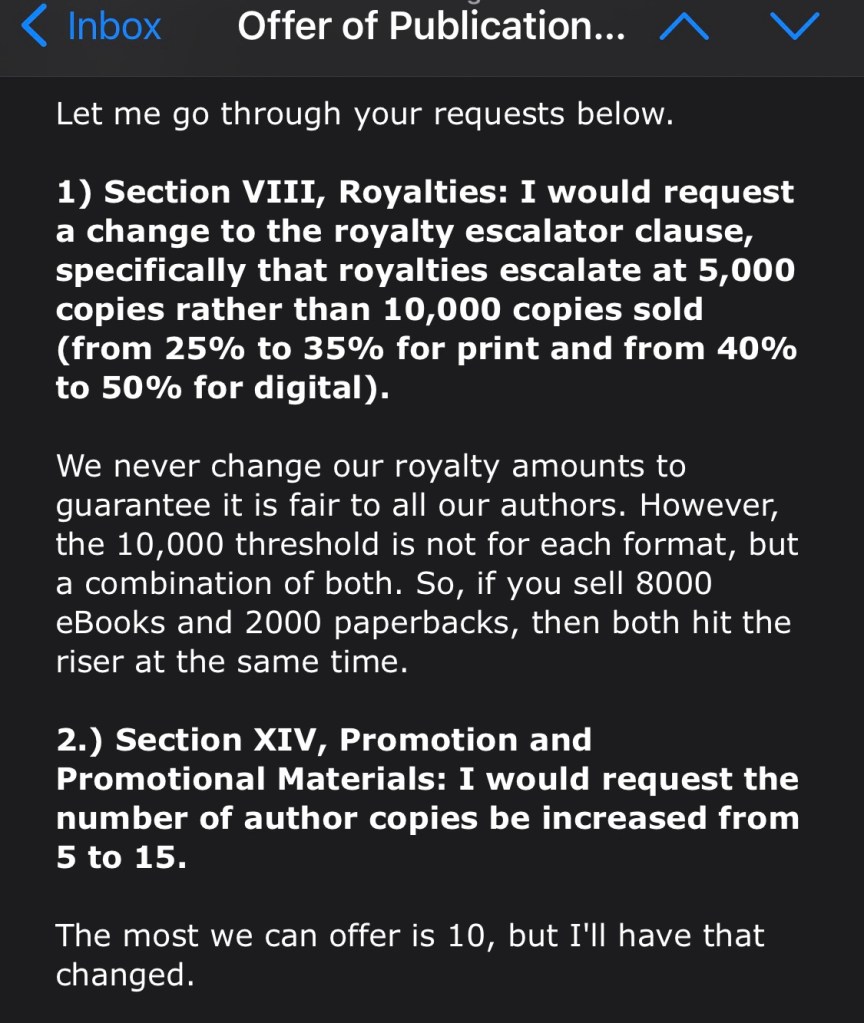
There was one factor, though, that outweighed all the rest. I wanted to be a published author very badly. In that first year of the great pandemic, when death seemed to lurk in every communal space, fulfilling my bucket list items took on a new level of urgency. I could hold out for an agent who could launch my traditional publishing career, but I might never get it. And I knew enough to know that trad was slow. I might wait years for my big break, if it ever came at all.

I might not have years. This was my chance to seize, so seize it I did.
Debut blues: am I the problem?
My debut the following year did not go off without a hitch, exactly, but it went ok. I planned my cover reveal and promised preorders to come soon. I worked hard to supplement City Owl’s marketing efforts, seeking out bloggers to feature my book and researching big name authors to blurb me.
I quickly learned that the authors and reviewers I wanted to reach out to often required physical ARCs (advanced reader copies), but as late as two weeks before launch, I had no ARCs to provide—not even digital ARCs. I also had no paperback preorder links, and people were asking for them.
“I was wondering if you could tell me if this is normal,” I wrote to my editor, near the end of October. “I apologize if I have missed something obvious…I am feeling very anxious and a little upset about all this, so thank you for any clarity you can provide.”
My editor looped in Ms. Moss to respond, which she did at length.




Let’s be clear: 1-2 weeks for ARC lead time is not normal industry practice for traditional publishing. ARCs are used to build buzz so you aren’t launching from zero name recognition. Per Booksirens, a leading review portal, 30-90 days is the typical range for providing ARCs prior to release, because “the more time readers get read your ARC before the publication date, the better your chances of launching with a healthy number of honest reviews on sites like Amazon, Goodreads, and Bookbub.” Other sources advise distributing ARCs 3-6 months before release, or even longer if you are seeking professional or big name reviews.
I never did manage to get my books stocked in the local indie bookstore, Capital Books on K, where the staff was very kind and as confused as me as to why they couldn’t locate my book. As far as I know, this issue was never resolved, and frankly, I gave up. I had enough on my plate without figuring out the backend business, too.
That December, I signed with my agent. Maeve wouldn’t represent my urban fantasy series in progress, but she still gave me significant support as I negotiated my book 2 contract. With an agent in the wings, it seemed, my contracts were negotiable. I asked for and was granted automatically reverting media rights, final say on media deals, and language specifying copy edits performed to professional standards.
Trouble brews on a short timeline.
Remember how I asked about trade reviews on October 27, and they told me those “had been submitted” but they had not heard back? Well, they didn’t say when they were submitted. The required lead time to submit review requests to trade publications is three months.
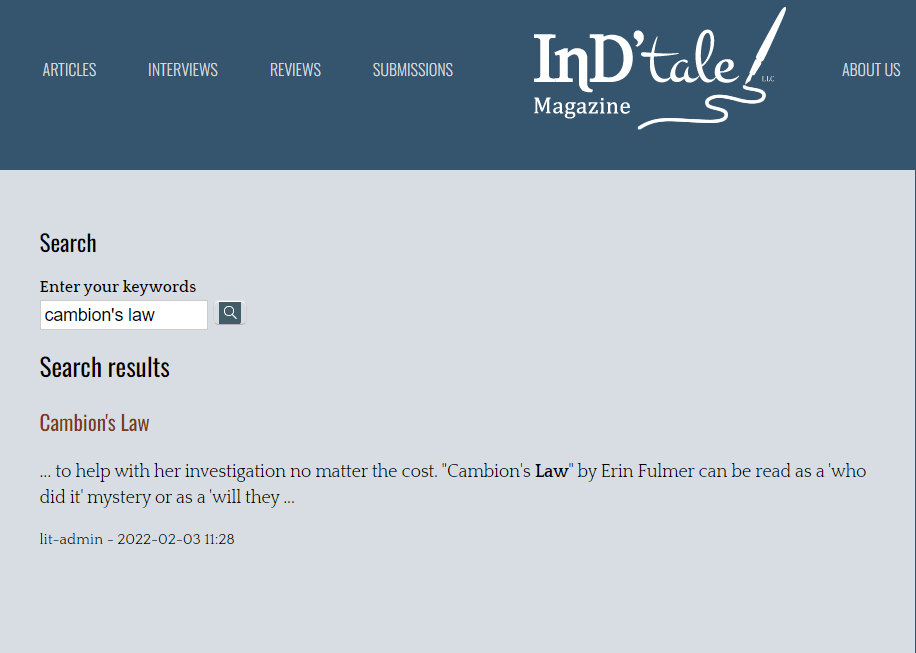
I was just grateful to get a trade review, so I didn’t question the lateness. I was also deep in edits for book 2. (As a note, my editor and I am still good friends and I don’t blame her for any of this nonsense—I never doubted she cared about my book.)
On February 18, 2022, my editor and I contacted the publisher about my cover. I had gotten the first book’s cover about six months in advance, but there was less lead time on this book. Still, with less than four months to go, it didn’t seem too early to ask. We also inquired about paperback ARCs for early blurbs and reviews as I had noticed another City Owl author had success getting these.
In response, Ms. Moss stated that “ARCs like that are not standard” (oh word?) and that it would be “considered” if I had a big name author who wanted to read. “Sorry to disappoint,” she wrote. “I figured that would be a question by authors but the thought of uncorrected paperback ARCs out there makes me cringe!” She went on to say “June covers are up, so should be now,” referring to the cover for Cambion’s Blood.
You had one job…
We finished content edits in late February and the manuscript went to copy editing on February 23. My release date was June 7, so we should have had plenty of time based on my experience with my last book and the production timeline as explained to me. Indeed, I was told, “we should be good to have the copy edits for early June titles done around April.”
On February 24, 2022, a week after she said covers for June were done, Ms. Moss emailed me again. She had “only realized it today” but she didn’t have a cover art form from me. I couldn’t remember if they had asked for one for book 2 before. Assuming I had somehow forgotten, I filled one out and sent it in.
Regardless, she had obviously not included my cover in the batch sent for June that were already “up.” Somehow, my book had fallen through the cracks. Little did I know, but it would do so again very soon.
Delays and disappointments
On March 9, I emailed Ms. Moss’s business partner, “executive editor” Yelena Casale, to ask about progress on the cover. I don’t know if I fully understood at that point that Ms. Moss had likely not even submitted the cover art order until late February. However, I had already scheduled and paid for a blog tour that needed the cover image by mid-March. Tours must be scheduled quite far out, so I had no way of knowing that I couldn’t fulfill the deadline when I reserved my slot.
I saw the first draft of the cover on March 18, but it needed work. On March 30, I followed up. On April 7, I saw and approved the updated version, but still had no final file. A week later, I emailed again: “I don’t want to be a pain but I was wondering when I can expect the final version of the cover so I can plan my cover reveal.”
I finally got the finished cover on April 16, a month after I had needed it for the tour. (Shout out to Giselle of Xpresso Tours for a whole lotta grace and patience, a consummate professional.) On April 17 I inquired about ISBNs, as experience with book 1 had taught me that updating Goodreads without them would be a source of pain and suffering.
I did not hear back from Ms. Moss. More worrying still, I still had not received my copy edits. On May 2, I followed up yet again. The next day, I finally received a response and my ISBNs, as well as an assurance that copy edits would be done “soon.”
I emailed on May 12, then on May 16, and was put off: they would come “soon,” the next day, the day after that. At this point, my release date was less than three weeks away and I still didn’t have copy edits let alone final proofs, let alone ARCs, and people were asking for them.
On May 18, I emailed my editor, “I’m feeling pretty anxious and upset about how this is coming down to the wire.” I added, “If this is going to be the norm going forward, I need to reassess some things.” She promised me she was “pushing.”
Expectations vs. reality.
That day, I sent an email to City Owl’s executive team raising concerns about the delayed production schedule. I tried to be polite and understanding. But I was also truthfully beside myself with anxiety and no small amount of anger. I had trusted them to take care of these details, and instead I had to babysit them, asking again and again about the status of each individual task until it was, belatedly and sometimes inaccurately, confirmed complete.
I learned much later that the representations about marketing, expectations placed on authors by the press, and publisher investment made to me in the email exchange reproduced below were at best a liberal approach to the truth. This later-learned, conflicting information came to me from other authors, Ms. Moss’s own Facebook posts, and my personal expense reports, which Ms. Moss provided just before I had my rights reverted.
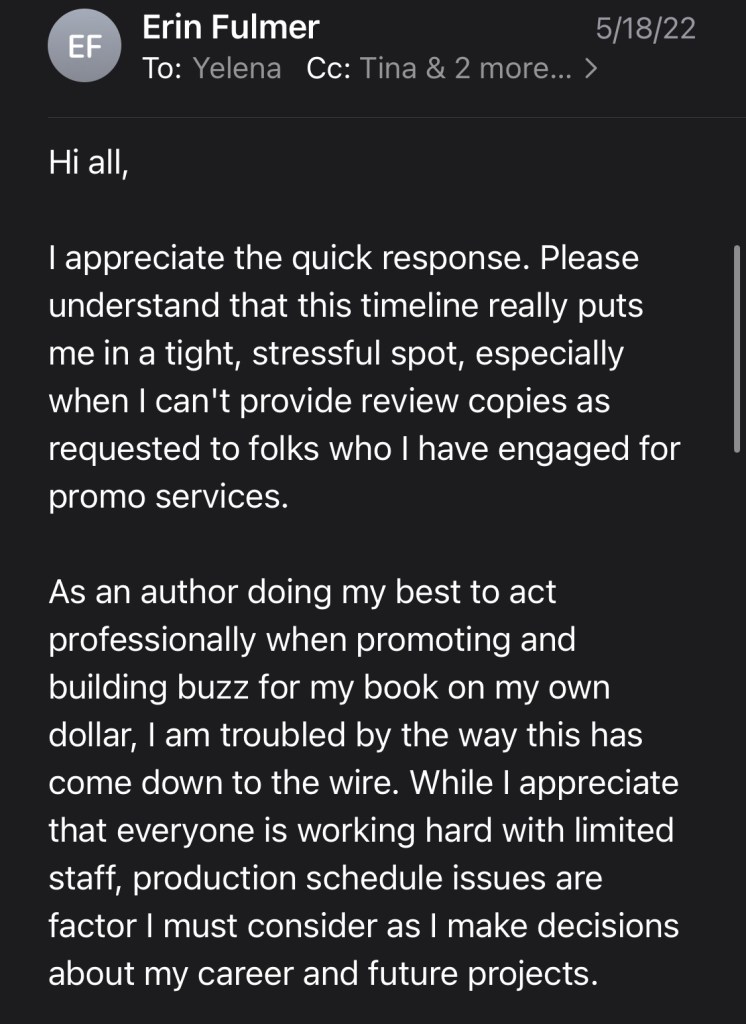

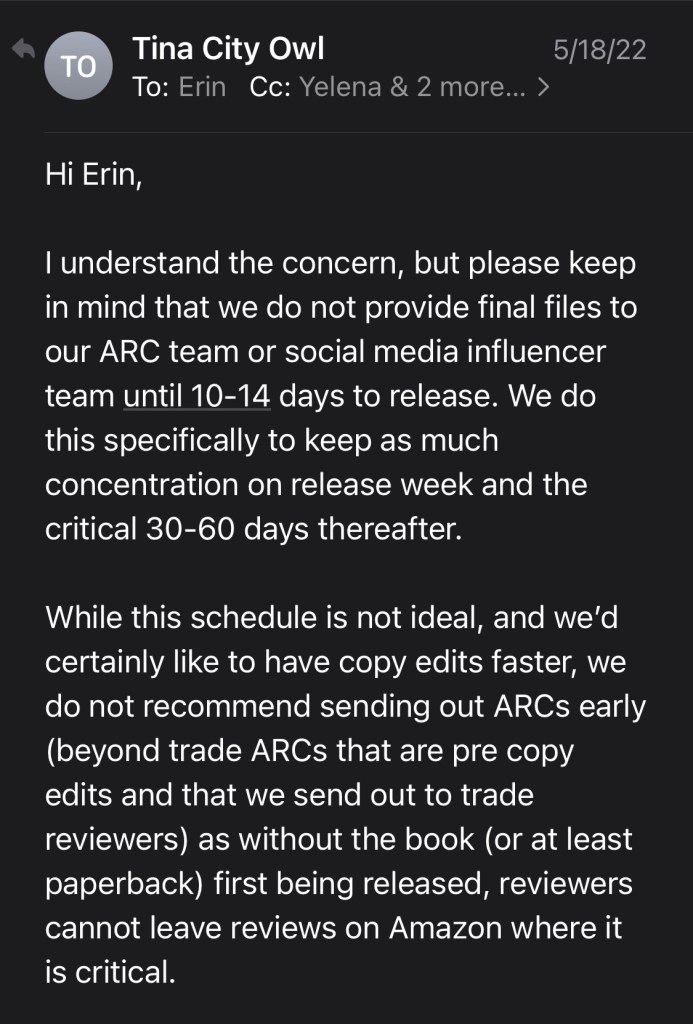

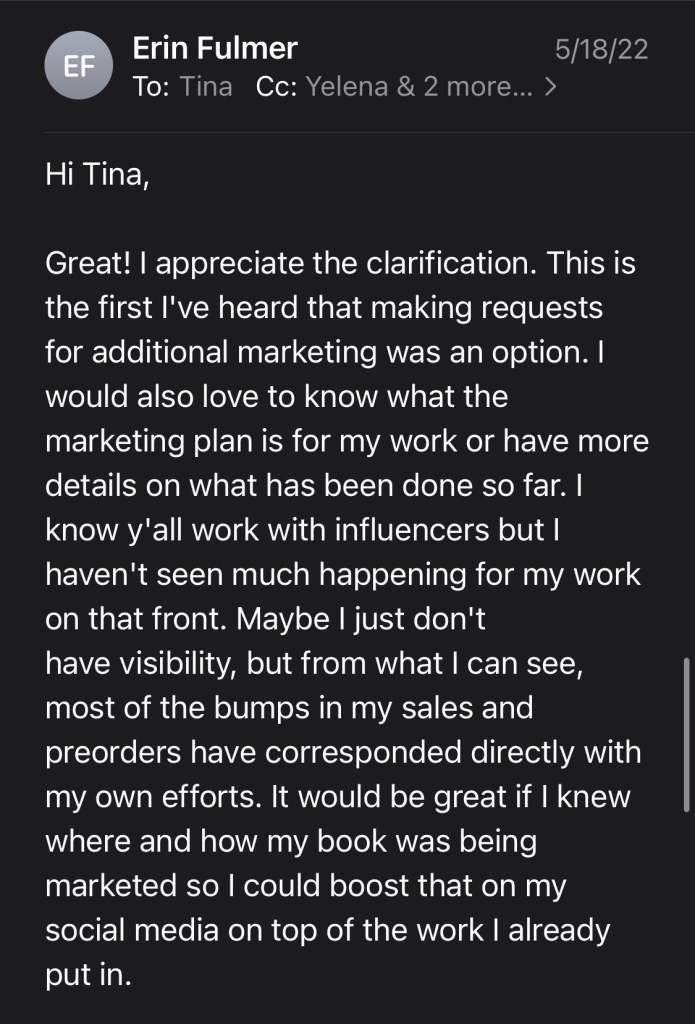



“Quite a lot of money into ad spend,” I would later learn, meant $500.00-$600.00 per book. For my books, this sum was mostly spent on indie discount sites and a single $150 A-B ad test City Owl would run the following month. I am not aware of my sub-rights ever being exercised or pitched in 2022. They were certainly never sold and an opportunity mentioned to me in December 2021 (around when I was negotiating my book 2 contract) never materialized. As for any interest in my marketing ideas…well, we’ll get to that. Next time.
![A list of digital advertisers (Bargainbooksy, Genrepulse, Book Barbarain [sic], eReaderNews Today) for which ad dollars on my book are spent.](https://erinfulmer.com/wp-content/uploads/2024/01/img_6388-1.jpg?w=776)
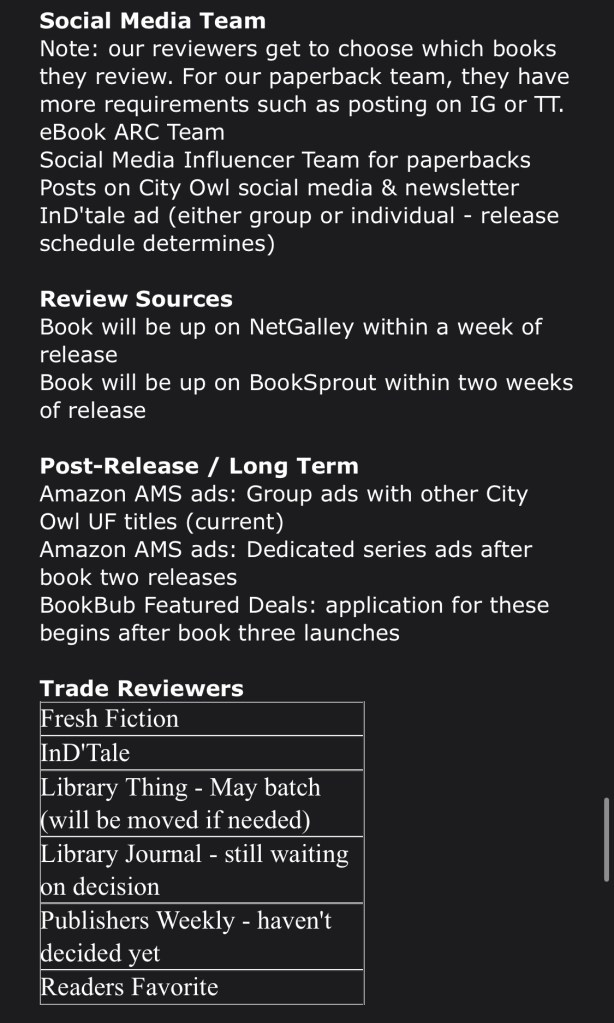
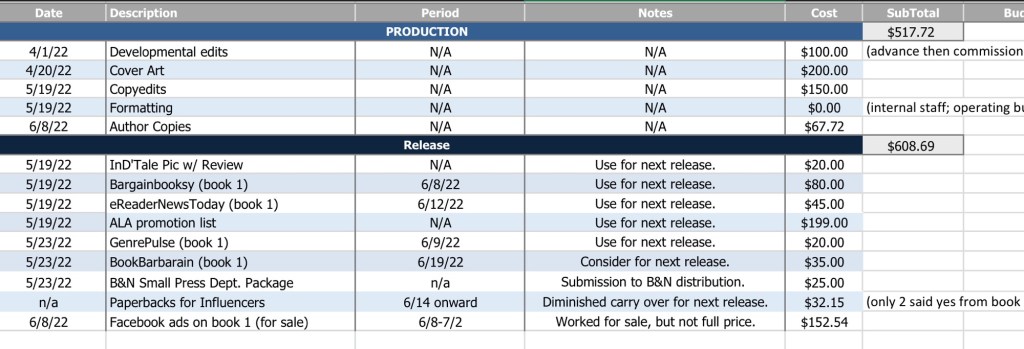
The solution offered for the late production schedule was to push my release date by two to three weeks. I declined, as I had already made plans for the scheduled release date of June 7. The marketing plan I received also promised “Amazon AMS ads: Dedicated series ads after book two releases.” If these ads were ever run, they were not included in my expense report. (Also, seeing how little they paid my editors gives me heartburn.)
It appears the other promised promos did run, but again, the trade review copies appear to have been late submitted to a single outlet, only after I asked about them. The InD’Tale review appeared on September 1, approximately three months later. If the book was sent to other trade reviewers, it is not reflected in my expense report. It’s my understanding that some trade review magazines don’t accept late-submitted requests, so perhaps that’s why.
Go on girl, give us nothing
I finally got my copy edits the next day, May 19. They were very light (67 total revisions) and I could tell they had been rushed. (A standard “light” copy edit on a novel length work is roughly 1500 revisions per CEs I have spoken with.) It left me wondering when the copy editor had actually received the manuscript from City Owl. I was about to go on a much needed weekend getaway so I rushed through them too, turning them around in 24 hours.
The following day, Ms. Moss sent a blast email to all City Owl authors explaining “updates” to the ARC policy.

In 2021, if you recall, the expected time for ARC’s was said to be 3-4 weeks before release. This new policy said the timeline for ARCs was 1-2 weeks before release, but generously, they would push it back to four weeks for “trusted” reviewers only. Meanwhile, I wondered, if uncorrected proofs were such a serious concern, why were my copy edits so last minute?
Clearly my self-advocacy had made some kind of impact, even if the response was mostly explaining why their way was better. Everything was very normal and very cool, and they would definitely bend over backwards to meet our needs, if we could only prove we had done the legwork first.

Reading this, I felt inexplicably queasy, but I had a book launch in two weeks and had just stared at copy edits for twelve to fourteen hours. Queasiness at this point seemed par for the course.
Tune in next time for the thrilling conclusion!
I think that’s enough for now, because I’m feeling queasy again.
Coming soon: I know how my publisher spent my summer ad budget, why I decided to end my series at three books, and what happens when a select group of authors is charged with the task of making an entire subgenre trendy again. A marketing plan for the unlucky and unloved is unveiled, while the good girls go to a special sekrit Facebook group. Meanwhile, the press indeed appears to have a budget for ad dollars and influencer campaigns—both of which visibly favor the owner’s books.
Then, the unthinkable happens. Authors start talking to each other. Then they start asking questions.
No one could have predicted this outcome…


Holy crap. The rate for editors is absolutely inhumane. It’s clear to me that the press’s values are not aligned with authors’ at all. Why were they so adamant on not distributing uncorrected proofs? It doesn’t make any sense to me. Their site says they’re cutting-edge, which I think means “we cut corners.” Excited to read part 2 and rooting for The Cambion Series’ success.
LikeLiked by 1 person
Thank you so much for your support! 💜
Frankly I do not understand the proofs issue either, and never did. My best guess is that it was an excuse. The real reason may have been that physical ARCs were seen as an unnecessary production expense, that they did not want to format it that early due to last minute copy edits/covers, or because Amazon limits the number of proofs in KDP (though you can still order them at cost, as I learned last week!) Their model is much closer to a self pub model than traditional pub. I’m kicking myself for letting them tell me it was normal.
LikeLike
Oh my goodness! What a nightmare! I’m so sorry you got embroiled in such a mess! This is all so unaligned with their so called values. Wishing you all the best as you strike out elsewhere!
LikeLiked by 1 person
Thank you Kathryn! 💜
LikeLike
I am so sad that this happened to you or any of the former City Owl Press authors. After talking with you and reading this, I looked back in my records. I was wrong about editing your second book in the series. I confused it with another. I did ARC reviews for Cambion’s Law and the 2nd book. I started out with COP as an avid ARC reader. I had made friends with the owners through TikTok and after a while, I became a copy editor with them. The rates are far below what I’ve seen other copy editors earn, but I was willing to take the hit to gain experience and build a portfolio for more freelance work. Plus, I liked most of the books I was able to work on.
I really expected better. Most of us on this side of the wall had NO idea what was going on. Suddenly there was a post from Tina with mea culpas and then I saw the mass exodus on Tiktok and Facebook of authors. I mean, I know we aren’t authors, but we are a part of the team and few of any of us knew what happened. I support all of the authors who got out of the situation. I’m just terribly sorry it happened to you. You expect more when you entrust your work with others. I’m so glad you are able to re-release the series. if I can help in any way, please let me know!
FYI: As an ARC reader for them, it was highly annoying that I only had a few days to really read and review. I was used to getting ARCs far earlier than they released them. That was NOT the industry standard. Editing for them went okay but it was always odd that everything went through a funnel and I rarely got feedback on edits. So unless I heard something back (and there were a few I got some helpful feedback from and some that were learning curves) I just assumed everything was fine and on time.
Anyway…I really wish you all sorts of good things in the future and I intend to keep reading and following! Hugs and keep your chin up!
LikeLike
Thank you so much Becka. I did remember a different CE name when you mentioned it to me, but I figured I had gotten mixed up. Whoever it was, I don’t think they had more than a couple of weeks to turn it around and $150 is such a low price it makes me sick to my stomach. Editing is hard work and y’all deserve to be paid for your time! Thank you for being an ARC reader for both my books and for your support. ❤
LikeLiked by 1 person
God I’m so sorry this happened. Without going into detail, I once went against my gut and signed with a completely unsuitable and unprepared literary agent because of my own hunger to be a published author. It did not end well. I can’t imagine what you were and are going through, but I am so grateful to you for sharing this because I was looking into City Owl just a few days ago. You helped me dodge a bullet.
LikeLiked by 1 person
Oh gosh yes. That right there is why I am writing this up in such great detail. So glad you dodged the bullet, don’t sell your work on the cheap to people who will handle it carelessly!
LikeLiked by 1 person